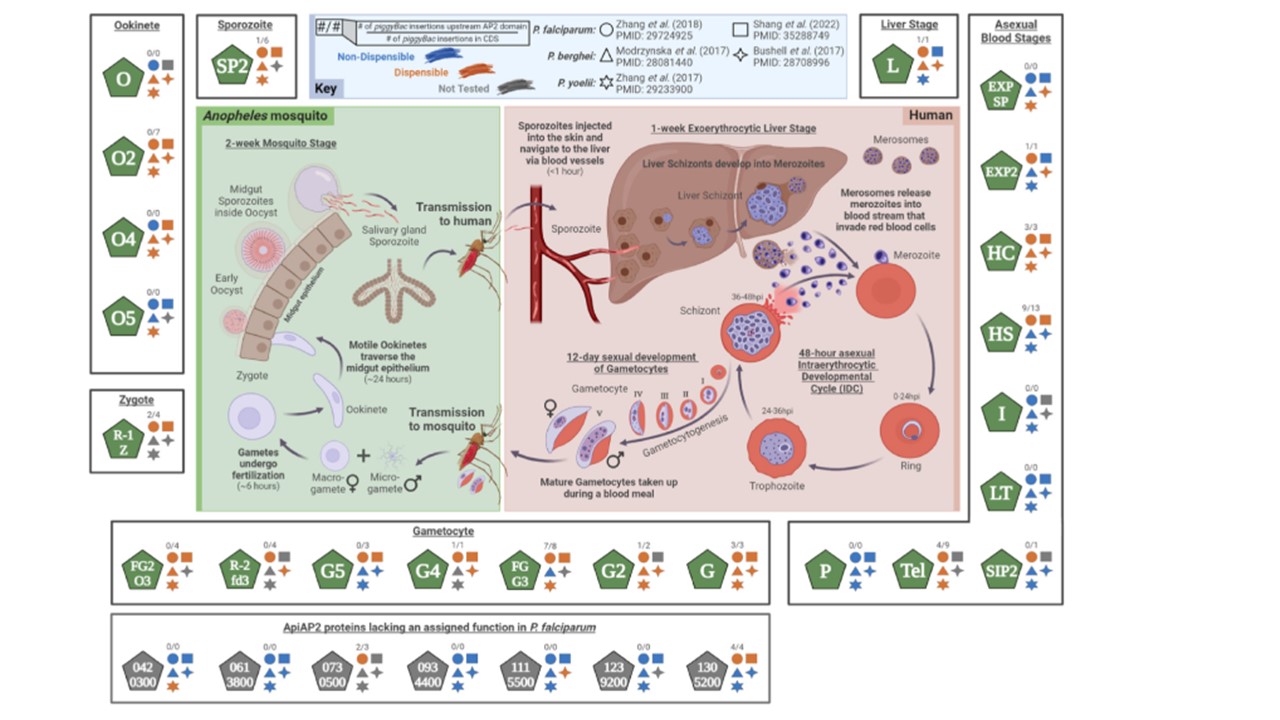ApiAP2 proteins regulate all developmental stages of the malaria parasite life cycle. Infection is initiated by the bite of an infected female Anopheles mosquito that deposits sporozoites, which traverse through blood vessels to invade liver hepatocytes and replicate asexually into schizonts that release merozoites into the blood stream. Merozoites rapidly invade erythrocytes and initiate the asexual intra-erythrocytic developmental cycle (IDC) consisting of the ring, trophozoite, and schizont stages. Alternatively, a small fraction of parasites commit to sexual development to form male and female gametocytes following five morphological stages (stages I–V). Mature-stage V gametocytes are transmitted to the mosquito during a blood meal leading to the release of male and female gametes in the mosquito midgut which undergo fertilization to form a zygote. The zygote differentiates into a motile ookinete that traverses the midgut epithelium to form an oocyst where multiple rounds of replication give rise to midgut sporozoites which rupture the oocyst wall and travel to the salivary glands, poised to be transmitted during the next blood meal. ApiAP2 proteins that regulate develop-mental transitions are denoted at the stage at which they have been most comprehensively characterized along with mutagenesis outcomes from large-scale reverse genetic screens in Plasmodium falciparum (circle and square) Plasmodium berghei (triangle and four-point star) and Plasmodium yoelii (six-point star). This categorization of ApiAP2 proteins does not exclude the possibility that they may also be involved in other stages of the parasite life cycle. The number of piggyback insertions upstream of the AP2 domain and the number of piggyback insertions in the coding sequence (CDS) for each ApiAP2 protein is depicted as #/#. Adapted from ‘Malaria Transmission Cycle’, by BioRender.com (2024). Abbreviation: hpi, hours post invasion. Singhal R, Prata IO, Bonnell VA, Llinás M. Unraveling the complexities of ApiAP2 regulation in Plasmodium falciparum. Trends Parasitol. 2024 Oct 16:S1471-4922(24)00250-2. PMID: 39419713.
